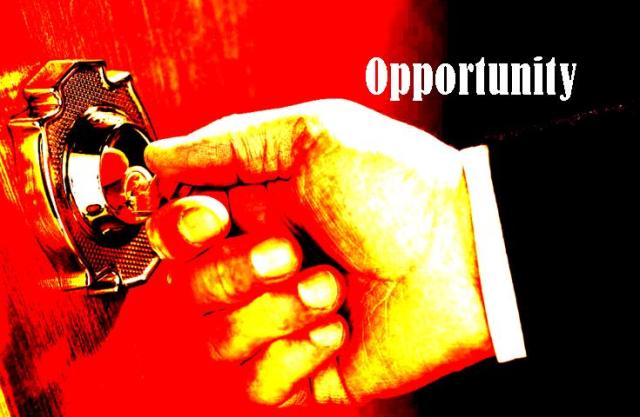http://www.gettyimages.com/detail/168351251
Taking advantage of opportunity is a lot harder than it sounds. Opportunities rarely come wrapped like beautiful presents. In fact, there are times when opportunity looks suspiciously like a setback or failure. I have confidently declared something to be a bad idea only to reflect on it later and realize it was actually closer to genius.
One thing I like to remember when an opportunity slips past me is that even the best opportunity seekers periodically get things wrong. Bessemer Venture Partners (BVP) is gracious enough to share their misses on their “anti-portfolio” web page. If you’re ever kicking yourself for missing out on a great thing, just wander over to that page. It’s not so much that misery loves company, as it is a good reminder that even the experts periodically get it wrong. To give you an example of one of their misses – they turned their nose up at Google.
So how do you know when opportunity is staring you in the face… or even quietly sitting next to you? Mark Rice and Gina Colarelli O’Connor describe opportunity recognition as, the match between an unfulfilled market need and a solution that satisfies that need. Seems straightforward enough right? The challenge is that unfulfilled needs are often no easier to identify than opportunity, especially if you don’t have a deep understanding of your market. So, starting with what you know, is the best way to hone your ability to spot an opportunity.
You have to have incredible knowledge of your market or area of interest. Imagine what your response would be if someone offered you shares in LinkedIn, Pinterest or even Facebook if you didn’t know anything about social media. How could you assess your options? How would you know what might happen? Even if you did know about social media – things change. BVP said no to Facebook because “MySpace” was already in existence.
The challenge of opportunity is that it can be shrouded in risk or the possibility of failure. Even if you get past the fear factor that risk imposes, you might still only partially recognize value. Something might seem like a good concept, but the application of the idea is limited. Only after new perspectives are discovered does the full potential for the original idea become fully realized. The story of the post it note illustrates that well.
Given all the variables at play, what kinds of questions can you ask yourself? For me it begins with the basics:
- What are the advantages?
- What are the disadvantages?
- How long will it take to come to fruition?
- Do I have the time it takes to make this work?
- What variations on the idea can be considered?
The thing about asking questions about ideas when they are presented to you is that you are not only continuing to learn, but you are also assessing your environment. Opportunity sometimes knocks, but for those times when it slips in the back door, open-minded curiosity is your best ally against missing out on a good thing.
